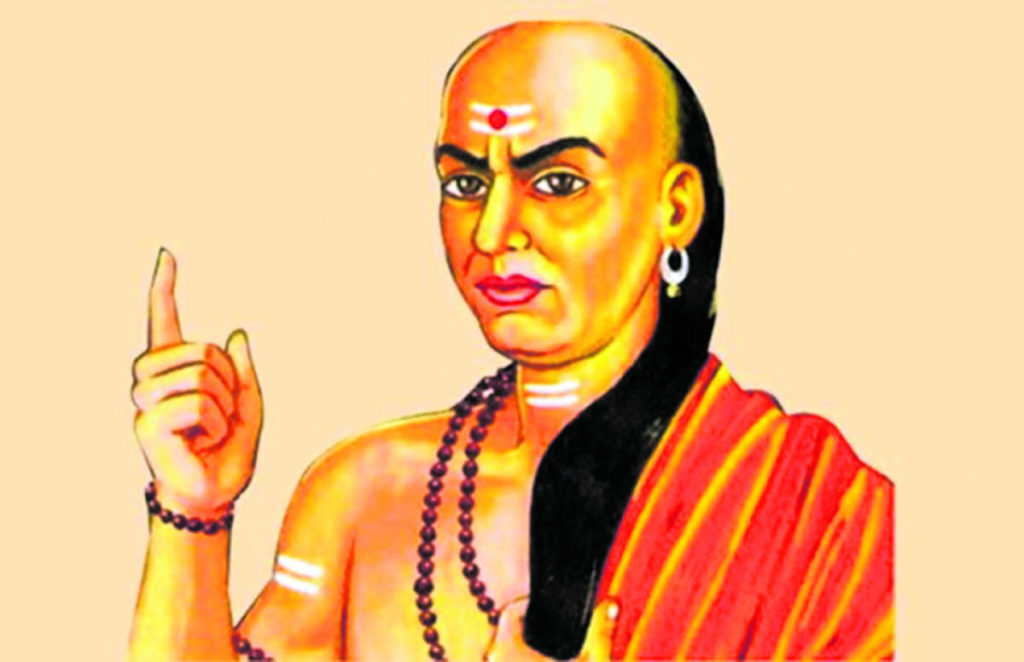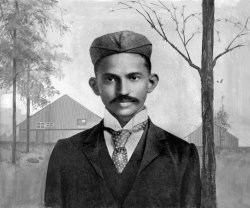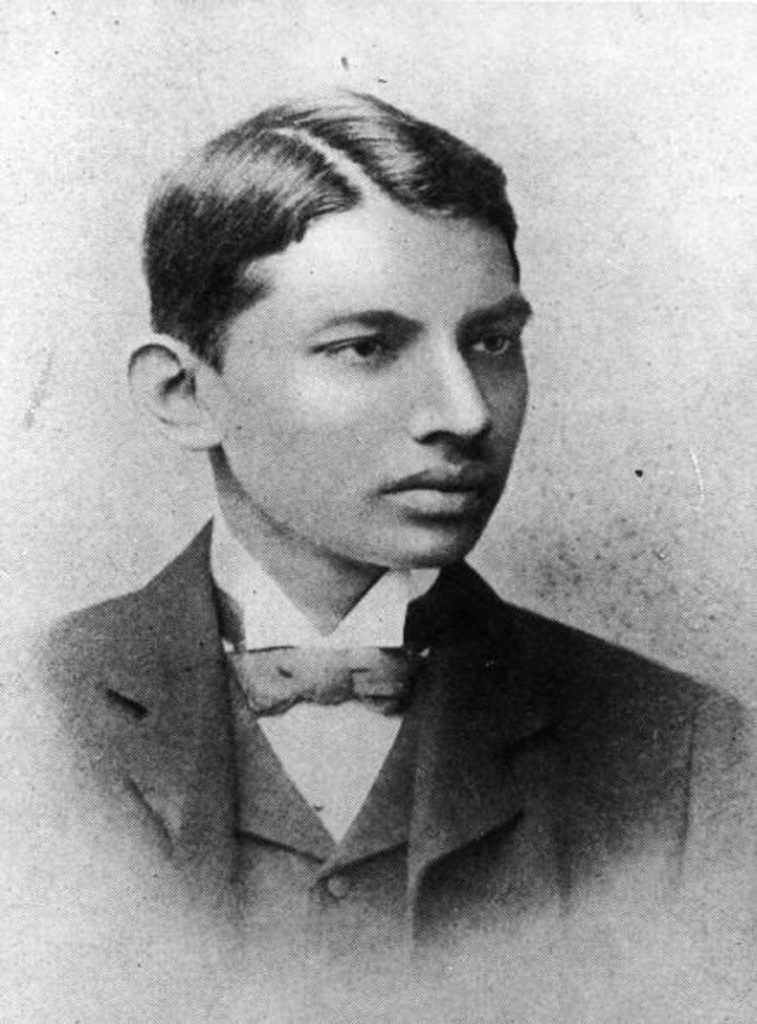Author – Awadhesh Sharma
Magadh, a region located in southern Bihar, was one of the sixteen Mahajanapadas, great kingdoms of ancient India. Bimbisar, a contemporary of Gautam Buddha, established the Haryanka dynasty that ruled Magadha, from its capital Rajgrih. His son king Ajatshatru shifted the capital from Rajgrih to Pataliputra, now known as Patna. Haryanka dynasty was replaced by the Shishunag dynasty, which in turn was replaced by Nand dynasty. The last king of Nand dynasty was Dhananand, whose rule was destroyed by Chanakya, and Maurya dynasty rule was established in Magadh.

Chanakya is a legendary figure in Indian history. Most details of Chanakya’s life are shrouded in myths and legends. Srilankan Buddhist text Mahavamsa and its commentary in Pali language, Jain text Parishishtaparva by Hemachandra, Mudrarakshas, a drama book in Sanskrit by Vishakhdatta and Kashmiri texts Katha Saritsagar and Brihat Kathamanjari are ancient sources that contain tales relating to Chanakya. Subject matters, narratives and legends pertaining to Chanakya in these books are not identical. However, it is unanimously accepted that Chanakya abolished the rule of Nand dynasty and installed Chandragupta Maurya as a king.
Little is known about the early life of Chanakya. Some scholars claim that he was a Brahmin from Kerala who somehow found himself in the court of Dhananand in Pataliputra. Others claim that he was born and educated in Taxila and came to Magadh to participate in philosophical debates. The most popular belief is that Chanakya was born in Magadh and received higher education at Taxila University where he became an Acharya, professor after completing his studies. Taxila, now located in Pakistan, was a great centre of learning around that period.
Consistent with the last version, he was a son of a Brahmin named Chanak of Kotil Gotra. Being a son of Chanak, he was known as Chanakya and being born in Kotil Gotra he was identified as Kautilya. Chanak lived near Pataliputra during the reign of Nand dynasty kings.
Chanakya lost his father at an early age. It is believed that he died due to a conspiracy against him by influential officials. Soon after his father’s death, Chanakya felt insecure and unsettled and left his home for a distant region. He travelled day and night, hungry and thirsty. One night during his travel, he tripped over a rock and fell down in a ditch injuring his face. In the morning, a passer-by old man noticed him lying with a bloodied face. He felt pity for the injured boy. On enquiry, Chanakya told him his name was Vishnugupta to hide his identity.
The old man was an educated person who taught students at a school. He brought Vishnugupta to his home and admitted him in the school as a student. Vishnugupta continued his studies until he finished the school course. Afterwards, Vishnugupta was interseted in continuing his higher study at Taxila University.
The old man had a friend who was a professor at Taxila University at that time. Through his help, Vishnugupta was allowed admission to the university and eventually became qualified in many disciplines including Philosophy, Astronomy, Alchemy, Economics and Social and Political Sciences. After completing his university degree, he became an Acharya of Political Science at the same instituition.
In 326 BCE, the Macedonian king Alexander invaded northwest of India. Without challenging the invader, king Ambhi of Taxila accepted Alexander’s supremacy and surrendered to him. Alexander moved further east and annexed the kingdom of king Porus. King Porus fought valiantly but was deceived by invading forces and captured. Alexander occupied both kingdoms and also nearby regions. Realising potential strong resistance further east, Alexander abandoned his campaign beyond River Vyas in modern day Punjab and turned back.
After occupying Taxila, Alexander changed the curriculum of Taxila University replacing Sanskrit with Macedonian, as a language of communication. Chanakya, as a professor at Taxila, observed the destruction of Indian kingdoms and traditional way of life and realised that disunity among the Indian kings was the main reason for their defeat. It was humiliating for all kings and intellectuals of India.
As an intellectual, Chanakya felt his responsibility to oppose the foreign occupation and assist in bringing that situation to an end. He decided to organise Indian kings who could jointly confront the invaders. He came to Magadh to seek assistance from the king. Magadh was a powerful kingdom at that time. Chanakya familiarised himself with the situation in Magadh and was disappointed with the prevailing condition there. Despite being a powerful kingdom, ordinary people were unhappy due to the misrule of king Dhananand.
At this time, king Dhananand had organised a grand function to honour scholars. Chanakya was invited as a guest to participate in the academic debate. During the program, he observed wastage of resources on royal pleasures and utter disregard for public welfare. Scholars’ views on righteousness and royal responsibilies were snubbed. In the function, he was not only denied the deserving honour but was also humiliated by the king himself with insulting remarks. He was enraged with the king’s behaviour and lost any hope of help from him.
He untied the tuft of hair on the top of his head and declared that he would not tie it again until he had destroyed the rule of Dhananand. Tying the tuft on the head was a symbol of dignity for an educated Brahmin. Such a declaration was almost impossible to materialise by an ordinary person but Chanakya accomplished it with his hard labour, perseverance and stratagems. He also achieved eviction of occupying foreign forces and establishment of a united India under his disciple emperor Chandragupta Maurya.
After the court debacle, Chanakya lived in a cottage outside the capital in Magadh and used to teach students. One day while he was walking, a Kush grass pricked his sole. He had dug up the root of the grass when he was pricked by it on an earlier occasion, but the grass had sprouted again. This time he dug up the roots and was sprinking diluted yogurt over the roots to eradicate it completely. An old man named Shakatar, who was passing by, watched him and queried the reasoning behind his action, which Chanakya explained to him.
Shakatar was an old critic of king Dhananand and was looking for opportunties to destroy his rule. Chanakya introduced himself, and during their conversation, Shakatar told him about the prevailing condition in the kingdom and his desire to remove Dhananand from power. Both had similar objectives and agreed that a new person with royal attributes was required to be appointed a king, replacing Dhananand. Chanakya requested Shakatar for his help in finding such a person.
Shakatar told Chanakya about an incident that happened to him earlier. He was travelling in the bordering region where he saw some boys playing a game of king and subjects. One strong looking boy was playing the role of king and was ordering other boys to perform various tasks. During the play, they saw a leopard coming towards them. The other boys ran away for protection, but the king boy took out his sword, faced the leopard and killed it in a single stroke. On enquiring about his actions, the boy told him that as he was the king, it was his duty to protects his subjects from the leopard.
Shakatar learnt from the boy that his name was Chandragupta. He lived with his mother Mura, who lived in a nearby village and earned her living by making various items from Mayur, peacock feathers.
Chanakya visited the village and met the boy and his mother. He recognised the attributes of a king in the boy and decided to train him to be a future king in preparation for replacing Dhananand. Chanakya requested the mother to hand over Chandragupta’s care and guardianship to him. After initial hesitations, she agreed. Chanakya brought Chandragupta to his Ashram and trained him in archery, politics and other disciplines requisite for a king.
To dislodge Dhananand’s rule, Chanakya needed a fighting force. He minted money through his knowledge of alchemy, and recruited forest dwellers to fight under the leadership of Chandragupta against Dhananand’s army. They attacked Patliputra but were unsucessful.
According to a tale, after their failure both Chanakya and Chandragupta once stopped in disguise to rest near a hut. They overheard a woman in the hut scolding her son for getting his fingers burnt while eating a meal. The son had started eating hot gruel from the centre of the plate. She said to her son, ‘You should start eating from the outer areas and then from the centre. You should not act like Chandragupta who attacked the capital first and was defeated.’ This was a strategic lesson for them.
They decided to attack the kingdom from outlying areas which were easy to conquer. Subsequently they established garrisons to maintain control over conquered areas and made alliances with neighboring kingdoms. Finally they attacked the capital of Magadh and captured it after defeated Nand’s army. Nand dynasty’s rule was abolished. Chanakya installed Chandragupta as a king of Magadh around 322BCE and thus completed his pledge. The king became well-known as Chandragupta Maurya, the originator of Maurya dynasty. Maurya is derived from his mother’s name Mura.
Chanakya was a master of tricks and strategies. A very capable minster of Dhananand known by name Rakshash continued his opposition to Chandragupta’s rule. Chanakya swayed him by his schemes to join Chandragupta. Chanakya also convinced other kings who assisted Chandragupta in defeating Dhananand to accept his authority.
Chandragupta defeated Seleucus Nicator, the Greek ruler of occupied regions in India and freed all occupied areas. On Chanakya’s advice, Chandragupta accepted Seleucus’ daughter as his wife to maintain a lasting peace in the region. Chandragupta’s empire extended from Bengal in the east to most of the Indian subcontinent, except for Odisha and southern tip of India. Chanakya remained the main perceptor and adviser of Chandragupta throughout his reign.
Two legends are commonly quoted about Chanakya’s death. According to one, Chandragupta relinquished his power after installing his son Bindusar on the throne and became a Jain monk. He travelled to modern day Karnataka to spend his time in meditation and spiritual discourse. Chanakya accompanied him. Both lived there in a cave, meditated and attained Nirvan using the traditional Jain monks’ way of leaving the mortal world by reducing their daily intake of food.
According to the other legend, after Chandragupta became a Jain monk, Chanakya retained his previous position during king Bindusar’s reign. One minister named Subandhu was jealous of him. He falsely told the king that Chanakya was responsible for the death of his mother, Durdhara, who died during Bindusar’s birth. Bindusar became angry with this revealation. Sensing the king’s anger, Chanakya resigned from his post and decided to end his life through meditation while sitting on a pile of dry cow-dung cake. However, soon Bindusar learnt from an elderly nurse who had witnessed his birth that it was Chanakya who saved his life. Chanakya had arranged to cut open and extract the baby Bindusar from his mother’s womb who had died by accidentally eating poisoned food which was meant for Chandragupta. Chanakya used to add a small amount of poison in the food for Chandragupta to enhance his immunity against food poisoning.
Bindusar repented and unsuccessfully tried to persuade Chanakya to return. Then he ordered Subandhu who was responsible for this predicament to bring Chanakya back. Following the royal order, Subandhu came to the dung-cake heap where Chanakya was meditating, and declared that he was performing a ceremony of respect for him. During this act, he sneakily slipped a burning fire into the dung-cake heap on which Chanakya was sitting. The pile lit up in flames taking with it the great Acharya.
Two popular books titled The Arthshastra and Niti Shastra, also known as Chanakya Niti, are credited to Chanakya. Principles described in these books are as relevant today as they were over 2,300 years ago. An astute strategist and king maker, Chanakya lived a humble life. His ideas of a united India continue to inspire generations of interested and knowledgable Indians.


